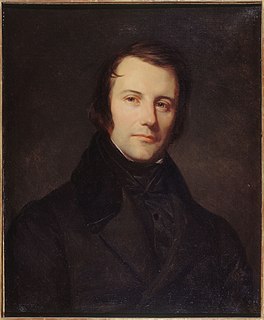A Quote by Elizabeth Goudge
All we are asked to bear we can bear. That is a law of the spiritual life. The only hindrance to the working of this law, as of all benign laws, is fear.
Related Quotes
The doctrines thus delivered we call the revealed or divine law, and they are to be found only in the holy scriptures.. are found upon comparison to be really part of the original law of nature. Upon these two foundations, the law of nature and the law of revelation, depend all human laws; that is to say, no human laws should be suffered to contradict these.
In Romans 7, St. Paul says, "The law is spiritual." What does that mean? If the law were physical, then it could be satisfied by works, but since it is spiritual, no one can satisfy it unless everything he does springs from the depths of the heart. But no one can give such a heart except the Spirit of God, who makes the person be like the law, so that he actually conceives a heartfelt longing for the law and henceforward does everything, not through fear or coercion, but from a free heart.
The law is only one of several imperfect and more or less external ways of defending what is better in life against what is worse. By itself, the law can never create anything better. Establishing respect for the law does not automatically ensure a better life for that, after all, is a job for people and not for laws and institutions.
Society today is no longer in revolt against particular laws which it finds alien, unjust, and imposed, but against law as such, against the principle of law. And yet we must not regard this revolt as entirely negative. The energy that rejects many obsolete laws is an entirely positive impulse for renewal of life and law.
We come together only to go apart again. The law of life can't be avoided. The law comes into operation the moment we detach ourselves from our mother's womb. All struggle & misery in life is due to our attempt to arrest this law or get away from it or in allowing ourselves to be hurt by it. The fact must be recognized. A profound unmitigated loneliness is the only truth of life. All else is false. The law of life. No sense in battling against it.
There has been no clearer principle of English or American constitutional law than that, in criminal cases, it is not only the power and duty of juries to judge what are the facts, what is the law, and what is the moral intent of the accused; but that it is also their power, and their primary and paramount duty, to judge the justice of the law, and to hold all laws invalid, that are, in their opinion, unjust or oppressive, and find all persons guiltless in violating, or resisting the execution of, such laws.






































